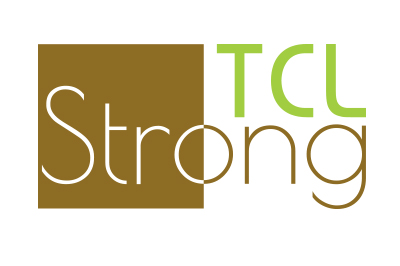Strong TLC: strong partnership for an enhanced social dialogue in the textile, clothing and leather sector in Slovenia, Croatia, Macedonia, Montenegro and Serbia
The project will contribute to integrating social partner organizations in participating countries and support future activities in the frame of European social dialogue, with a view to strengthen the capacity of social partners in social dialogue both at national and European level.
Social Dialogue is recognized as a pillar of the European model of democracy and is essential for sustainable development, growth, employment creation, job quality, business performance and international competitiveness. Social dialogue is not only a key element and pillar of the European Social Model, but also a vector of innovation and implementation of reforms. It forms an essential element of the acquis communautaire and is therefore a part of the assessment for membership to the European Union. Although, social dialogue is firmly integrated at European level, the capacity for the EU-level social dialogue to building trust, reaching agreement and developing concrete outcomes of practical relevance for employers and workers (joint positions, good practices, guidelines and other negotiated agreements), is to some extent unknown. Within this project social partners at national level (specifically in the textile, clothing and leather sector - TCL sector) will be informed about the importance of the European level social dialogue where their voice can be heard by the national and European authorities.
As the most meaningful form of Social Dialogue within one country is collective bargaining, we would like to pass on knowledge of collective bargaining and collective agreements and present their role in the transposition of Union law into the national laws. Developed collective consultation of social partners is of great importance for the protection of workers' rights, which improves their position in the labor market, has a positive impact on social inclusion and presents a fundamental guarantee of social peace. This is, in the short and long term, essential for the continuous and smooth development of work processes and individual activities. In times of economic crisis, when the social dialogue is on probation, building a confidence in collective bargaining is the most appropriate way to address the current problems, making it possible only on qualitative, integrated and sustainable solutions.
Aims of the project
- Promoting the implementation of the Acquis Communautaire in the area of social dialogue in Croatia, the FYR Macedonia, Montenegro and Serbia, and helping the social partners to build their capacity to adopt and implement EU law, as well as European standards;
- Increasing the awareness and understanding of employers and workers representatives of European (Sectoral) Social Dialogue and the fact that it is a level where the voice of national social partners and sectors can be heard in order to maintain the activity and competitiveness as well as employment in Europe;
- Adaptation of social dialogue to changes in employment and work related challenges, such as the modernisation of the labour market, flexicurity, skills, quality of work and decent work;
- Making the employers' and employees negotiators at the sectoral level acquainted with the relevant content of the collective agreement (concrete example) and instruct them on techniques / skills of negotiations in order to further develop and strengthen social dialogue, which is essential for achieving long-term prosperity and social peace;
- Strengthen the capacity of social partners in Slovenia, Croatia, Macedonia, Montenegro and Serbia to contribute to European Social Dialogue.
Expected Deliverables
- a publication with manual on social dialogue and collective bargaining in the TCL sector in Slovenian, Croatian, Macedonian and Montenegrin language,
- national workshops in Croatia, Montenegro and FYR of Macedonia to identify the elements necessary to allow the national social partners to take part in European social dialogue in the TCL sector, including a seminar for employers’ negotiators (capacity building of negotiators in collective bargaining) (3 workshops – one day events in two parts),
- panel discussions on social dialogue and the modernisation of labour markets in all SEE partner countries (4 panel discussions),
- study tour visiting social partner representatives and companies in the TCL sector in Slovenia (best practice examples, workshops, meetings),
- final conference with a press conference on social dialogue in the TCL sector on European and national level,
- websites on (European) social dialogue, changes in employment and work, modernisation of labour market etc. (organized by ZDS, HUP UTKI, MEF and BCM in their web portals).
Project partners
Employers’ organisations:
- HUP UTKI - Croatian Employers’ Association of Textile and Leather Industry
- BCM - Business Confederation of Macedonia
- MEF - Montenegrin Employers Federation
Trade unions:
- STUPIS - Trade Union of the Slovenian Textile and Leather-Processing Industry
- STKC - Trade Union of workers in textile, leather and shoe making industry of Rep. of Macedonia
- STOKG - Trade Union of Textile, Footwear, Leather and Rubber of Croatia
- TUCPTIM - Trade Union of Textile, Leather, Pharmaceuticals and Chemical Industry of Montenegro
- AUTLFIS - Autonomous Union of Textile, Leather and Footwear Industry Workers of Serbia
- TU IEM NEZAVISNOST - Trade Union of Industry, Energy and Mining Nezavisnost (Serbia)
With support by the European sectoral social partner organisation:
- EURATEX - European Apparel and Textile Organisation
- COTANCE - Confederation of National Associations of Tanners and Dressers of the European Community
- industriAll - European Trade Union

With financial support from the European Union.

